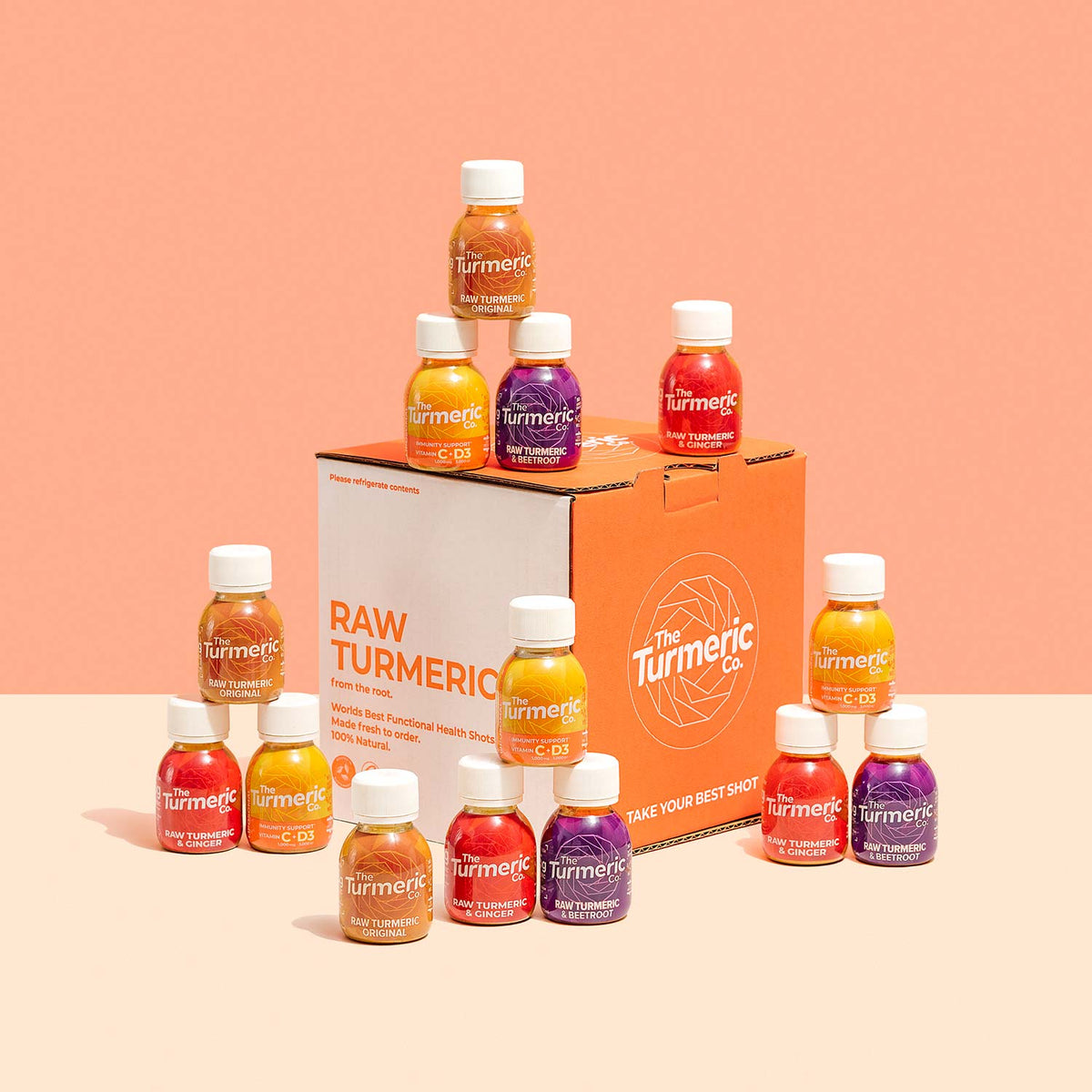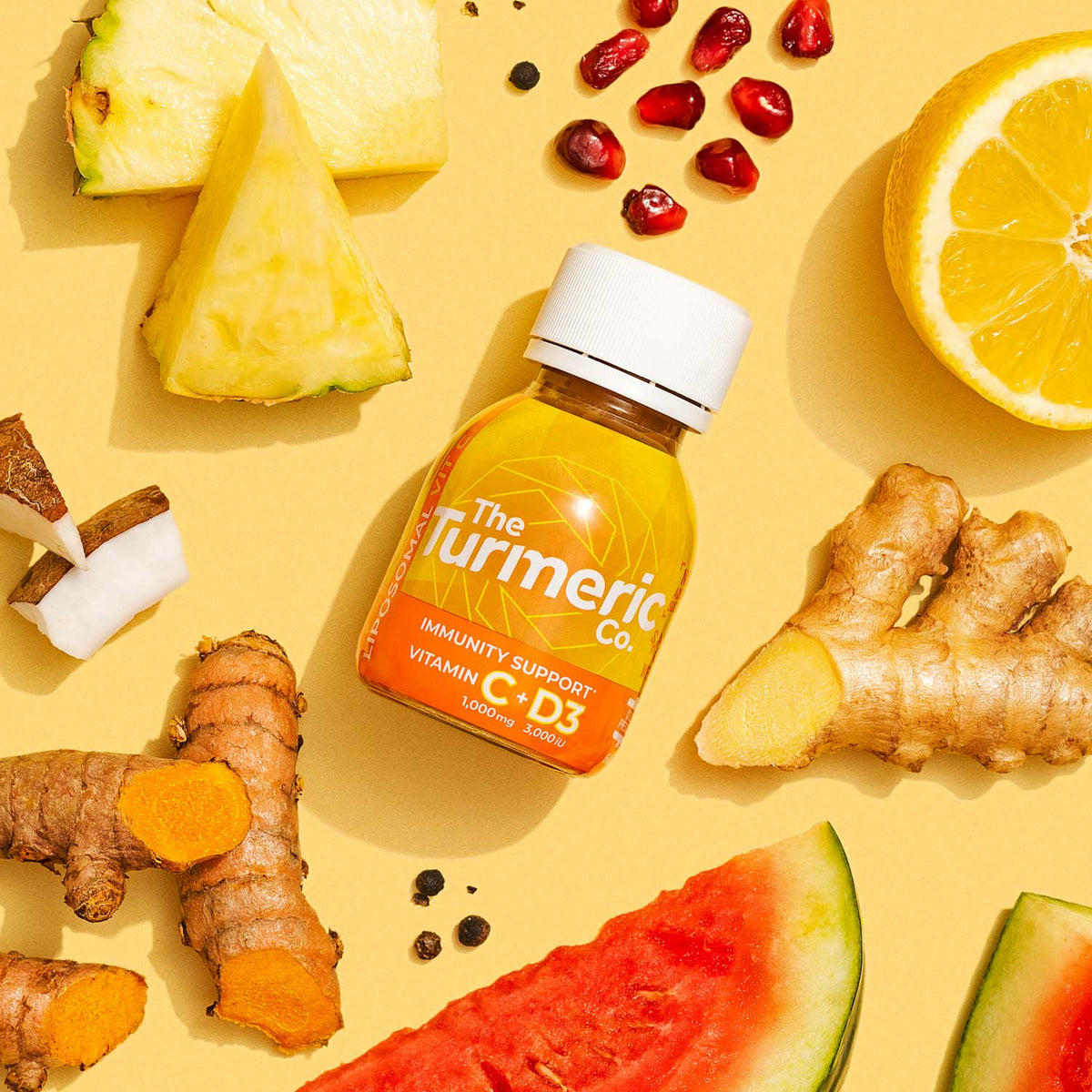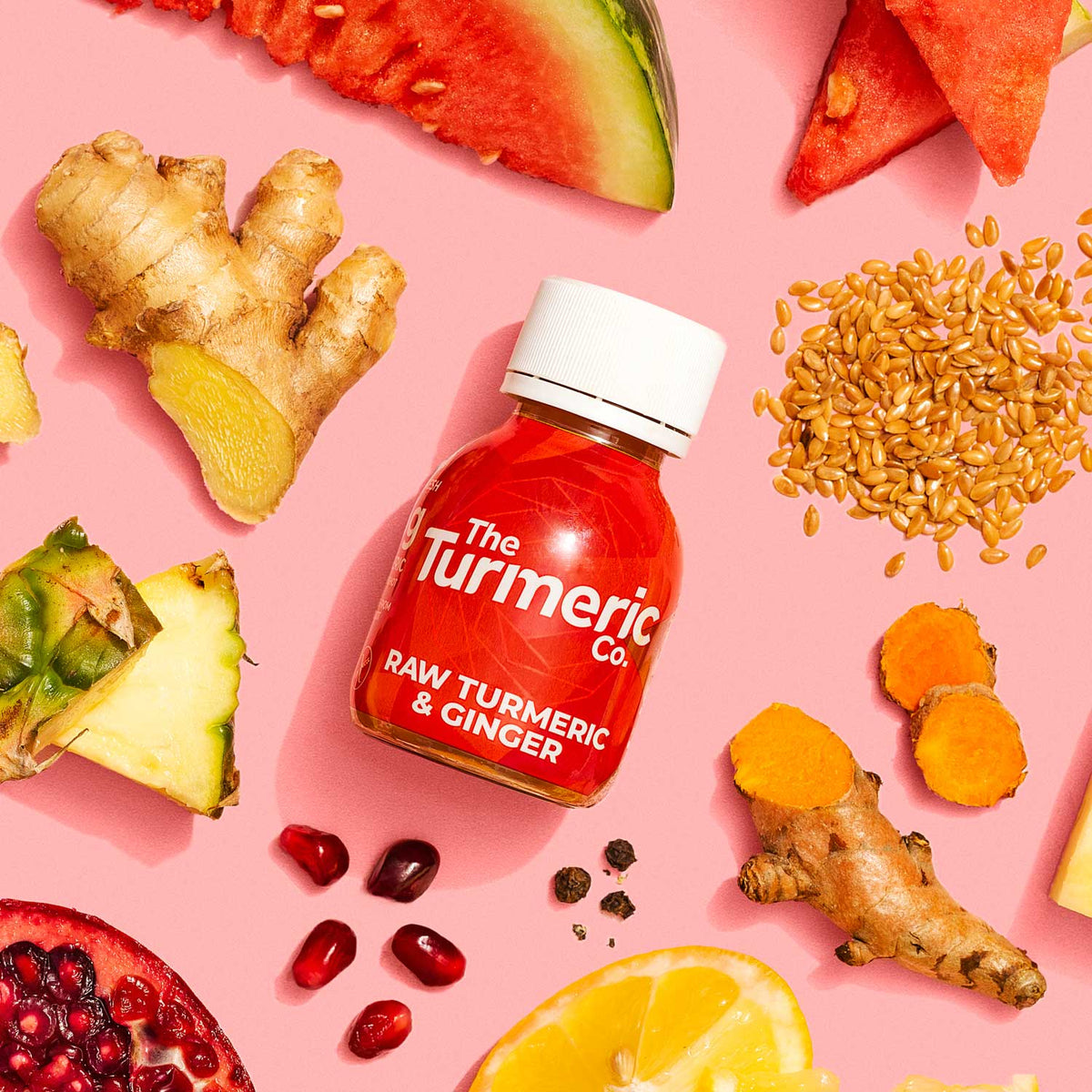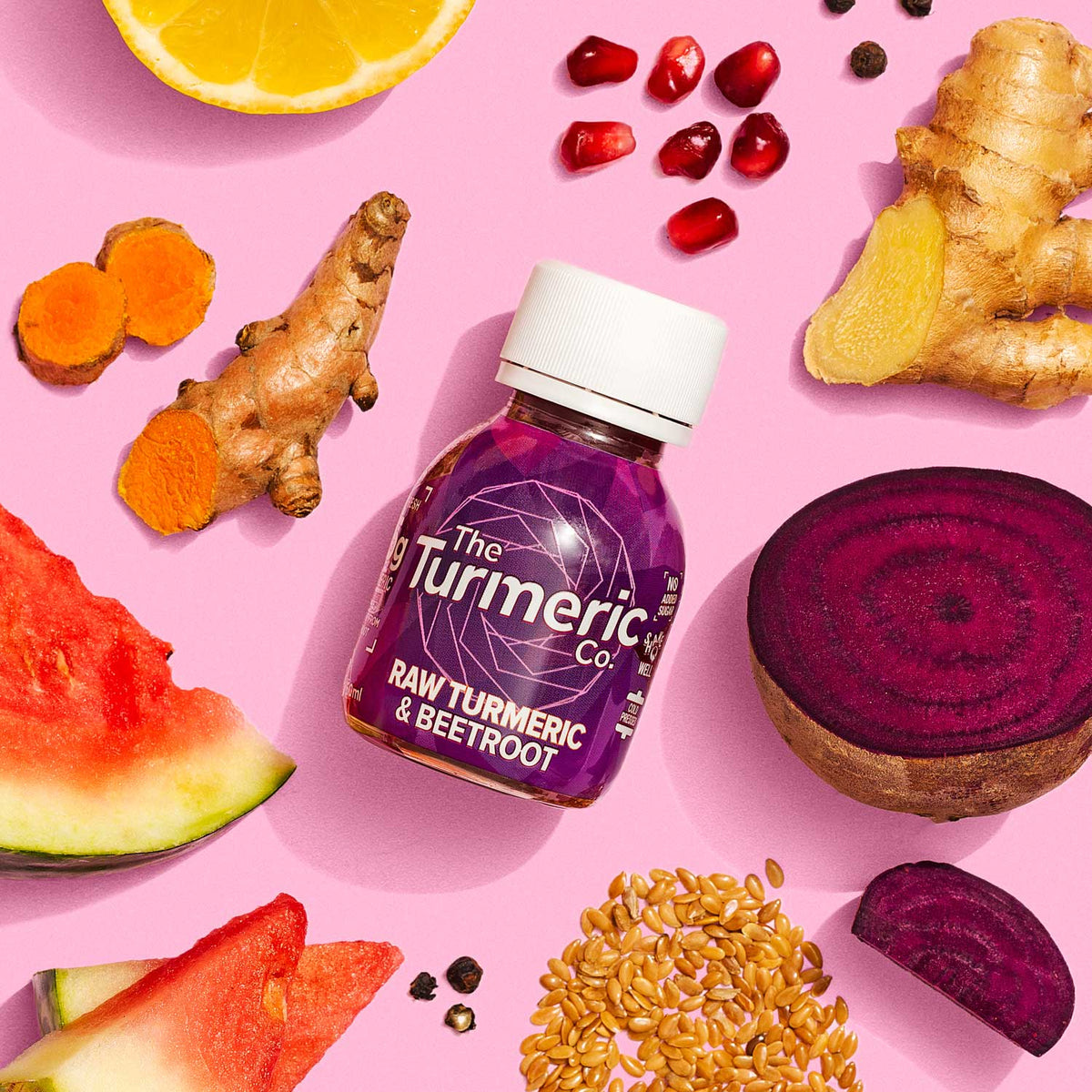What are the Health Benefits of Taking Turmeric?
Turmeric is the spice on everyone's lips and for good reason! There are a number of different health benefits of turmeric that are quite hard to ignore. From improved skin health to suggested anti-inflammatory benefits - there are several conditions which turmeric is said to be effective for. But what exactly are the benefits of turmeric and what's the best, most effective way to take it?
It’s Been Linked to Reduced Inflammation
Perhaps the most well-known health benefit of turmeric is that it has been said to have incredible anti-inflammatory properties. That’s down to curcumin, the active compound in turmeric which gives it its vibrant yellow colour.
Inflammation is a natural bodily process which helps to protect from bacteria, viruses and injury and everybody has some level of acute inflammation within the body – especially those who are chronically stressed, have a poor diet or regularly hit the gym. However, if it’s not treated, chronic inflammation has been linked to health problems such as:
- Type 1 diabetes
- Metabolic syndrome
- Rheumatoid arthritis
- Allergies
- Skin conditions
- Asthma
- Brain diseases such as Alzheimer’s
- Cancer
Taking a curcumin supplement could help to fight inflammation, both acute and chronic, reducing the risk of developing certain conditions or helping to manage the symptoms in those who already suffer from them.
But how does turmeric work for inflammation? When taken in its most bioavailable form, curcumin helps to stifle the molecules responsible for triggering inflammation, regulating the level of inflammation within the body. Pass us a Turmeric Shot!
It Could Improve Brain Function

Now, we’re going to get quite technical with you here, so bear with us. There’s a growth hormone found in the brain called brain-derived neurotrophic factor (we’ll call it BDNF for short).
Decreased levels of BDNF have been linked to several brain disorders, including depression, anxiety and even Alzheimer’s disease. But how is turmeric relevant to any of this, we hear you ask?
Well, studies have shown that curcumin may be able to increase the levels of BDNF within the brain, reducing the risk of a number of mental health problems, degenerative brain diseases and improving overall brain function.
So whether you’re just looking to boost your memory, or potentially reduce your risk of degenerative brain diseases - including turmeric in your diet might be the way to go.
It's a Potent Antioxidant
It’s a word that’s thrown around a lot, but what exactly is an antioxidant and how can it benefit your health?
We’ll start from the beginning.
Free radicals are unstable atoms that seek out other molecules to bond to. However, a large number of free radicals can cause oxidative stress on the body, which can lead to:
- Hair loss
- Premature aging of the skin
- Diabetes
- Rheumatoid arthritis
- Cardiovascular disease
However, there is a solution – antioxidants.
Antioxidants are powerful chemicals which can help to fight free radicals and reduce the impact they have on the body. They’re found in large quantities in turmeric, as well as other foods such as berries, pomegranate and carrots – to name a few! Therefore, including these antioxidant-rich foods into your diet may help to ward off everything from wrinkles to cardiovascular disease.
It Can Help to Lower Blood Pressure
Often referred to as the ‘silent killer’, high blood pressure commonly has no symptoms and develops slowly over time. If left untreated, it can lead to heart disease, stroke and even heart failure.
However, turmeric has been said to help lower blood pressure. This is because curcumin improves the function of the endothelial cells (the lining of blood vessels and the heart to you and I).
Endothelial cells are essential for blood pressure regulation, as they help to expand and contract the vessels to keep the heart functioning, so by helping to keep these cells functioning normally, blood pressure can be reduced.
It's Great For Skin Health
Often used as an ingredient in skincare products, turmeric is great for skin health and has been used as a skin treatment in India for centuries.

It’s said to be particularly helpful for those suffering from skin conditions such as psoriasis and eczema, helping to control flare ups. Additionally, curcumin may help to:
- Promote wound healing
- Reduce breakouts
- Add a healthy glow to the skin
- Reduce dark circles
- Fight free radical damage to the skin
- Improve acne scarring
So whether you add a daily turmeric shot to your diet, or make yourself a DIY turmeric face mask – your skin is sure to thank you for it.
It Can Slow Down the Growth of Cancer Cells.
Turmeric is often hailed as an alternative cancer treatment, as there is some evidence that curcumin is able to destroy certain cancer cells and prevent new ones from forming, primarily in breast, bowel, stomach and skin cancer.
Additionally, research has shown that cancer rates are lower in countries where people consume a curcumin-rich diet – around 100mg-200mg daily. Although more research is needed into this area, the studies carried out have shown promising results.
What's The Best Way To Take Turmeric?
When it comes to the best way to take turmeric, it’s not quite as easy as just cooking yourself a delicious curry each week (although we highly recommend that too!).

In order to activate curcumin (the chemical compound in Turmeric which carries the majority of the benefits), it needs to be taken with black pepper. However, the most effective way to take turmeric is in liquid form as the ingredients are more bioavailable.
In fact, studies have shown that liquid supplements take the body between 1-4 minutes to utilise, compared with 20-30 minutes for supplements in tablet form, so the benefits of liquid supplements far outweigh those in tablet form.
So whether you’re looking to improve skin health, or you’re on a quest to lower your blood pressure – the benefits of turmeric can help with a whole host of health concerns. Explore our range of Raw Turmeric Shots today to start reaping the benefits.
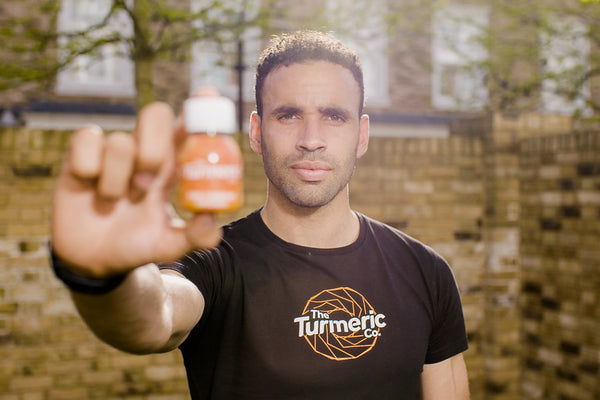
The Hal Robson-Kanu Guide To Fitness & Nutrition
Gain exclusive insight into habits that will make every day a healthy and fulfilling one.
